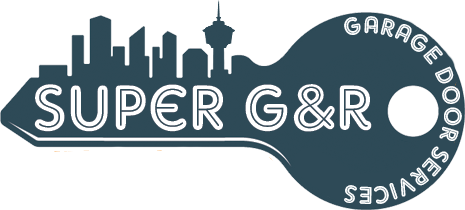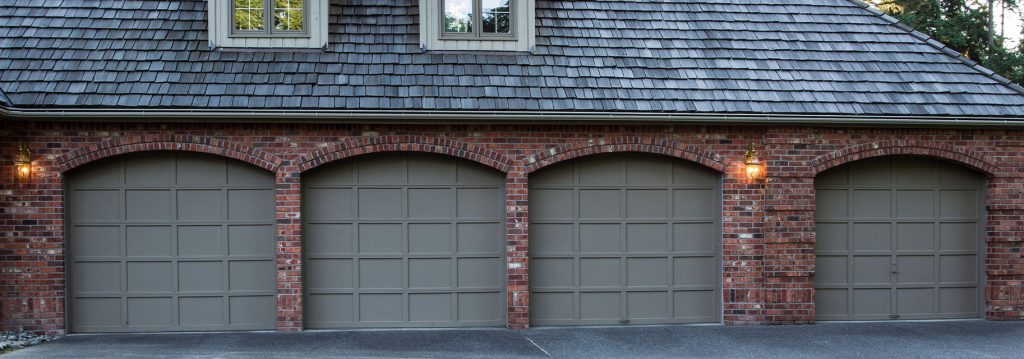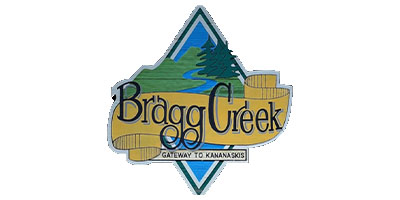The overlooked part of fall maintenance
As the weather cools, most of us think about sealing windows, cleaning gutters, or servicing furnaces. What often slips through the cracks is garage door care. We open and close these doors daily, yet rarely give them attention until something goes wrong. Lubrication is one of the simplest steps to keep a garage door running smoothly. Without it, friction builds, parts wear faster, and unexpected repairs become more likely. Our team at Super G&R has seen many cases where regular care could have prevented costly issues.
How seasonal changes affect garage doors
Temperature shifts and moisture create conditions that impact moving parts. Cold air causes metal components to contract, which makes rollers and tracks work harder. At the same time, dust and dirt gather in hinges and bearings. When fall arrives, the transition from warm to chilly air exposes weaknesses. If lubrication is skipped, you may notice squeaks, jerks, or even the door sticking in mid-movement. By addressing this before winter sets in, we save ourselves from dealing with frozen or strained systems during the coldest months.
Which parts need lubrication most
Every garage door has several points that benefit from care. Hinges, rollers, springs, and the opener’s chain or screw drive all require attention. We avoid greasing the track itself because that attracts grime and leads to buildup. Instead, we focus on applying a thin layer of silicone-based or lithium spray to the moving parts. This type of lubricant resists extreme temperatures and prevents rust. Paying close attention to the springs is essential, since they handle the heavy lifting. Well-lubricated springs work quietly and maintain tension longer.
Signs you waited too long
It is easy to tell when a door is overdue for maintenance. Grinding noises, uneven lifting, and jerky movements are the most common indicators. Sometimes the door even slams shut because the springs no longer glide smoothly. Another red flag is when the opener motor seems to strain, even though the door is balanced. Once these signs appear, extra wear has already started. That is when reaching out for a professional inspection becomes the smart step. If left unchecked, damage can spread beyond the moving parts and affect structural components.
DIY lubrication tips for homeowners
Applying lubricant is simple but requires patience. We start by disconnecting the opener to move the door manually. That lets us feel resistance and check balance before spraying. After cleaning dust from hinges and rollers, we apply a light coating of silicone spray. Wiping off excess prevents dripping on the floor. When handling springs, we stay at a safe distance, since high tension can make them dangerous if mishandled. Finally, we reconnect the opener and run the door a few times to distribute the coating. Doing this once in fall is usually enough.
Why professional service still matters
Even with careful DIY work, not all issues can be spotted without training. A technician can tell when a spring is losing strength or when a roller has worn bearings. That level of expertise reduces the chance of sudden breakdowns in the middle of winter. Our team also checks alignment, tracks, and opener settings while performing lubrication. This full approach ensures everything works together instead of treating only one part. For those of us in colder climates, this routine becomes even more valuable. You can read more about local services like garage door repair Calgary if you want a closer look at what this involves.
How lubrication saves money in the long run
Spending a few minutes each fall can extend the lifespan of a door system by years. Friction is the main cause of part failure, and lubricant acts as a barrier. That means rollers last longer, springs hold tension, and motors avoid burnout. When combined with periodic inspections, these small steps reduce the risk of emergencies that cost far more. We have seen households save hundreds simply by staying consistent with seasonal care. Considering how often garage doors are used, maintenance becomes an investment rather than an expense.
The right products to choose
Not all sprays or greases are suitable for garage doors. Household oils may provide short-term relief but quickly become sticky and attract debris. Silicone and lithium sprays are the standard choice because they remain smooth in both hot and cold temperatures. They also resist moisture, which prevents rust from forming on steel parts. Reading the label before purchase helps avoid using products not designed for high-load moving parts. We always keep a can in our toolkit, making the fall routine quick and reliable.
Making lubrication part of a yearly habit
We know that garage door care is rarely top of mind. Setting a reminder during seasonal chores ensures it never gets missed. Fall is the ideal time, since it prepares the system for winter stress. Pairing this with checking weather stripping and cleaning the sensors creates a full maintenance routine. Families often involve kids in pressing the opener while an adult inspects, turning it into a simple household task. By adding it to the checklist alongside gutter cleaning or furnace checks, we make it second nature. For professional scheduling, contact us directly and we will help arrange a service before the weather turns colder.
FAQ
How often should I lubricate my garage door?
Once a year is usually enough, with fall being the best time. If you hear squeaks or grinding sooner, reapply as needed.
Can I use WD-40 for garage door lubrication?
No, WD-40 works as a cleaner, not a long-term lubricant. It can remove grime, but always finish with silicone or lithium spray.
What happens if I do not lubricate my garage door?
Skipping lubrication leads to faster wear on rollers, springs, and hinges. Over time, this increases the chance of sudden failures.
Is it safe to lubricate springs myself?
Yes, but keep distance and use controlled spray. Springs are under high tension, so never attempt repairs beyond applying lubricant.
Do insulated doors need more care than standard ones?
Insulated doors weigh more, so lubrication is even more important. It keeps the system balanced and reduces strain on the opener.











